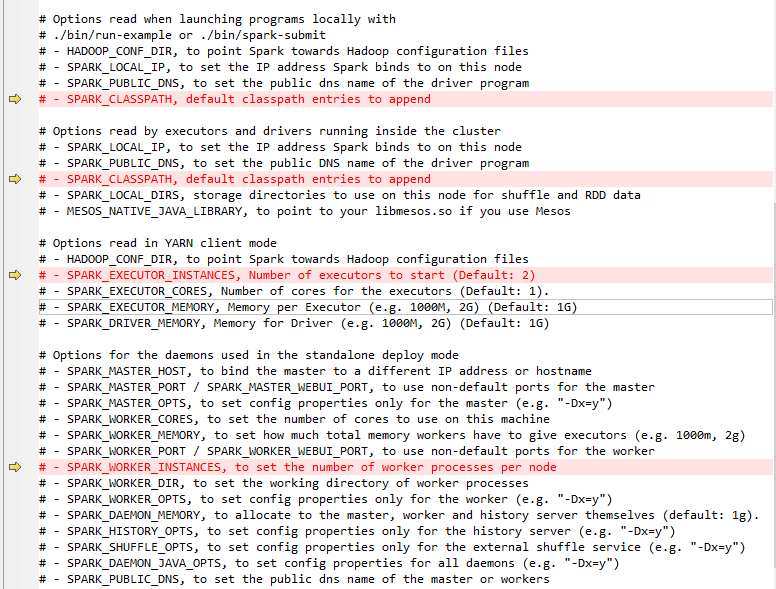Ignite与Spark集成时,ClassNotFoundException问题解决
参考文章:https://apacheignite-fs.readme.io/docs/installation-deployment
Spark application deployment model allows dynamic jar distribution during application start. This model, however, has some drawbacks:
- Spark dynamic class loader does not implement
getResourcemethods, so you will not be able to access resources located in jar files. - Java logger uses application class loader (not the context class loader) to load log handlers which results in
ClassNotFoundExceptionwhen using Java logging in Ignite.
There is a way to alter default Spark classpath for each launched application (this should be done on each machine of the Spark cluster, including master, worker and driver nodes).
- Locate the
$SPARK_HOME/conf/spark-env.shfile. If this file does not exist, create it from template using$SPARK_HOME/conf/spark-env.sh.template - Add the following lines to the end of the
spark-env.shfile (uncomment the line settingIGNITE_HOMEin case if you do not have it globally set):
# Optionally set IGNITE_HOME here. # IGNITE_HOME=/path/to/ignite IGNITE_LIBS="${IGNITE_HOME}/libs/*" for file in ${IGNITE_HOME}/libs/* do if [ -d ${file} ] && [ "${file}" != "${IGNITE_HOME}"/libs/optional ]; then IGNITE_LIBS=${IGNITE_LIBS}:${file}/* fi done export SPARK_CLASSPATH=$IGNITE_LIBS
You can verify that the Spark classpath is changed by running bin/spark-shell and typing a simple import statement:
scala> import org.apache.ignite.configuration._
import org.apache.ignite.configuration._
官方给出的以上解决方案,在spark2.1上是可以的,但是在spark2.2中不起作用,对比了一下spark2.1和spark2.2中的spark-env.sh脚本,发现其中一些变量,在spark2.2中不存在了:



 浙公网安备 33010602011771号
浙公网安备 33010602011771号